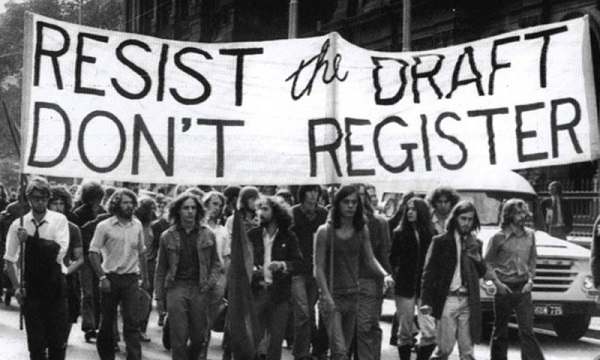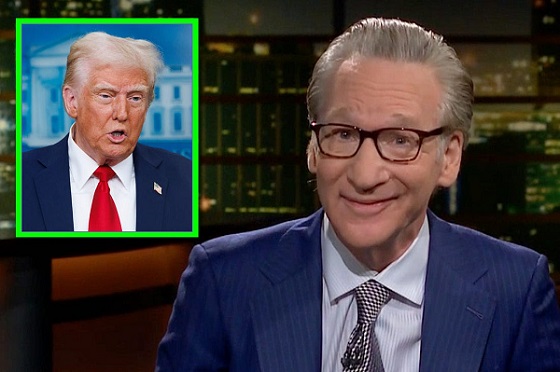Brownstone Institute
Meet the VLOPs! The EU Extends its Censorship Powers

From the Brownstone Institute
BY
On Tuesday this week, the European Commission announced its first list of designated Very Large Online Platforms – or VLOPs – that will be subject to “content moderation” requirements and obligations to combat “disinformation” under the EU’s Digital Services Act (DSA). As VLOPs, the designated services will be required “to assess and mitigate their systemic risks and to provide robust content moderation tools.”
Or as a subheading in the Commission announcement pithily puts it: “More diligent content moderation, less disinformation.”
As discussed in my previous articles on the DSA here and here, the legislation creates enforcement mechanisms – most notably, the threat of massive fines – for ensuring that online platforms comply with commitments to remove or otherwise suppress “disinformation” that they have undertaken in the EU’s hitherto ostensibly voluntary Code of Practice on Disinformation.
Unsurprisingly, the list of designated VLOPs includes a variety of services offered by all the most high-profile signatories of the Code: Twitter, Google, Meta, Microsoft, and TikTok.
But, far more surprisingly, it also includes several platforms that are not signatories of the Code and to which the Commission appears now to be extending the Code/DSA requirements unilaterally. The latter include Amazon, Apple (in the form of the App Store), and even Wikipedia.
The Commission has even designated the favorite messaging service of every filter-crazy preteen, Snapchat! Curiously, however, WhatsApp is not named.
Since many of the newly designated platforms are not publishing platforms per se, it is unclear how exactly the “content moderation” requirements will apply to them.
What will “content moderation” mean for Amazon, for example? That user reviews containing alleged “disinformation” will have to be removed? Or will books or magazines that the European Commission deems to be vessels or purveyors of “disinformation” have to be purged from the catalogue?
The inclusion of the Apple App Store is perhaps even more ominous. Will its subjection to the Code/DSA requirements provide an indirect route for the EU to demand the removal of apps of non-designated platforms that the Commission, however, deems channels of disinformation? Telegram, for example?
And what about Wikipedia? The DSA invests the European Commission with the power to impose fines of up to 6 percent of global turnover on VLOPs. But Wikipedia is a non-profit that is funded by donations. It does not sell anything, so it does not have any turnover. But presumably the Commission plans to treat its fundraising income as such.
Furthermore, Wikipedia is not a publishing platform, but a user-edited collaborative encyclopedia. If it is to be subject to the EU’s “content moderation” requirements, what can this possibly mean other than that Wikipedia will have to remove user edits that the European Commission deems to be “mis-” or “disinformation?” The European Commission will thus become the very arbiter of encyclopedic knowledge and truth.
The European Commission’s list of designated entities, comprising 17 Very Large Online Platforms as well as 2 Very Large Online Search Engines (VLOSEs), is reproduced below.
Very Large Online Platforms:
- Alibaba AliExpress
- Amazon Store
- Apple AppStore
- Booking.com
- Google Play
- Google Maps
- Google Shopping
- Snapchat
- TikTok
- Wikipedia
- YouTube
- Zalando
Very Large Online Search Engines:
- Bing
- Google Search
Brownstone Institute
If the President in the White House can’t make changes, who’s in charge?

From the Brownstone Institute
By
Who Controls the Administrative State?
President Trump on March 20, 2025, ordered the following: “The Secretary of Education shall, to the maximum extent appropriate and permitted by law, take all necessary steps to facilitate the closure of the Department of Education.”
That is interesting language: to “take all necessary steps to facilitate the closure” is not the same as closing it. And what is “permitted by law” is precisely what is in dispute.
It is meant to feel like abolition, and the media reported it as such, but it is not even close. This is not Trump’s fault. The supposed authoritarian has his hands tied in many directions, even over agencies he supposedly controls, the actions of which he must ultimately bear responsibility.
The Department of Education is an executive agency, created by Congress in 1979. Trump wants it gone forever. So do his voters. Can he do that? No but can he destaff the place and scatter its functions? No one knows for sure. Who decides? Presumably the highest court, eventually.
How this is decided – whether the president is actually in charge or really just a symbolic figure like the King of Sweden – affects not just this one destructive agency but hundreds more. Indeed, the fate of the whole of freedom and functioning of constitutional republics may depend on the answer.
All burning questions of politics today turn on who or what is in charge of the administrative state. No one knows the answer and this is for a reason. The main functioning of the modern state falls to a beast that does not exist in the Constitution.
The public mind has never had great love for bureaucracies. Consistent with Max Weber’s worry, they have put society in an impenetrable “iron cage” built of bloodless rationalism, needling edicts, corporatist corruption, and never-ending empire-building checked by neither budgetary restraint nor plebiscite.
Today’s full consciousness of the authority and ubiquity of the administrative state is rather new. The term itself is a mouthful and doesn’t come close to describing the breadth and depth of the problem, including its root systems and retail branches. The new awareness is that neither the people nor their elected representatives are really in charge of the regime under which we live, which betrays the whole political promise of the Enlightenment.
This dawning awareness is probably 100 years late. The machinery of what is popularly known as the “deep state” – I’ve argued there are deep, middle, and shallow layers – has been growing in the US since the inception of the civil service in 1883 and thoroughly entrenched over two world wars and countless crises at home and abroad.
The edifice of compulsion and control is indescribably huge. No one can agree precisely on how many agencies there are or how many people work for them, much less how many institutions and individuals work on contract for them, either directly or indirectly. And that is just the public face; the subterranean branch is far more elusive.
The revolt against them all came with the Covid controls, when everyone was surrounded on all sides by forces outside our purview and about which the politicians knew not much at all. Then those same institutional forces appear to be involved in overturning the rule of a very popular politician whom they tried to stop from gaining a second term.
The combination of this series of outrages – what Jefferson in his Declaration called “a long train of abuses and usurpations, pursuing invariably the same Object” – has led to a torrent of awareness. This has translated into political action.
A distinguishing mark of Trump’s second term has been an optically concerted effort, at least initially, to take control of and then curb administrative state power, more so than any executive in living memory. At every step in these efforts, there has been some barrier, even many on all sides.
There are at least 100 legal challenges making their way through courts. District judges are striking down Trump’s ability to fire workers, redirect funding, curb responsibilities, and otherwise change the way they do business.
Even the signature early achievement of DOGE – the shuttering of USAID – has been stopped by a judge with an attempt to reverse it. A judge has even dared tell the Trump administration who it can and cannot hire at USAID.
Not a day goes by when the New York Times does not manufacture some maudlin defense of the put-upon minions of the tax-funded managerial class. In this worldview, the agencies are always right, whereas any elected or appointed person seeking to rein them in or terminate them is attacking the public interest.
After all, as it turns out, legacy media and the administrative state have worked together for at least a century to cobble together what was conventionally called “the news.” Where would the NYT or the whole legacy media otherwise be?
So ferocious has been the pushback against even the paltry successes and often cosmetic reforms of MAGA/MAHA/DOGE that vigilantes have engaged in terrorism against Teslas and their owners. Not even returning astronauts from being “lost in space” has redeemed Elon Musk from the wrath of the ruling class. Hating him and his companies is the “new thing” for NPCs, on a long list that began with masks, shots, supporting Ukraine, and surgical rights for gender dysphoria.
What is really at stake, more so than any issue in American life (and this applies to states around the world) – far more than any ideological battles over left and right, red and blue, or race and class – is the status, power, and security of the administrative state itself and all its works.
We claim to support democracy yet all the while, empires of command-and-control have arisen among us. The victims have only one mechanism available to fight back: the vote. Can that work? We do not yet know. This question will likely be decided by the highest court.
All of which is awkward. It is impossible to get around this US government organizational chart. All but a handful of agencies live under the category of the executive branch. Article 2, Section 1, says: “The executive Power shall be vested in a President of the United States of America.”

Does the president control the whole of the executive branch in a meaningful way? One would think so. It’s impossible to understand how it could be otherwise. The chief executive is…the chief executive. He is held responsible for what these agencies do – we certainly blasted away at the Trump administration in the first term for everything that happened under his watch. In that case, and if the buck really does stop at the Oval Office desk, the president must have some modicum of control beyond the ability to tag a marionette to get the best parking spot at the agency.
What is the alternative to presidential oversight and management of the agencies listed in this branch of government? They run themselves? That claim means nothing in practice.
For an agency to be deemed “independent” turns out to mean codependency with the industries regulated, subsidized, penalized, or otherwise impacted by its operations. HUD does housing development, FDA does pharmaceuticals, DOA does farming, DOL does unions, DOE does oil and turbines, DOD does tanks and bombs, FAA does airlines, and so on It goes forever.
That’s what “independence” means in practice: total acquiescence to industrial cartels, trade groups, and behind-the-scenes systems of payola, blackmail, and graft, while the powerless among the people live with the results. This much we have learned and cannot unlearn.
That is precisely the problem that cries out for a solution. The solution of elections seems reasonable only if the people we elected actually have the authority over the thing they seek to reform.
There are criticisms of the idea of executive control of executive agencies, which is really nothing other than the system the Founders established.
First, conceding more power to the president raises fears that he will behave like a dictator, a fear that is legitimate. Partisan supporters of Trump won’t be happy when the precedent is cited to reverse Trump’s political priorities and the agencies turn on red-state voters in revenge.
That problem is solved by dismantling agency power itself, which, interestingly, is mostly what Trump’s executive orders have sought to achieve and which the courts and media have worked to stop.
Second, one worries about the return of the “spoils system,” the supposedly corrupt system by which the president hands out favors to friends in the form of emoluments, a practice the establishment of the civil service was supposed to stop.
In reality, the new system of the early 20th century fixed nothing but only added another layer, a permanent ruling class to participate more fully in a new type of spoils system that operated now under the cloak of science and efficiency.
Honestly, can we really compare the petty thievery of Tammany Hall to the global depredations of USAID?
Third, it is said that presidential control of agencies threatens to erode checks and balances. The obvious response is the organizational chart above. That happened long ago as Congress created and funded agency after agency from the Wilson to the Biden administration, all under executive control.
Congress perhaps wanted the administrative state to be an unannounced and unaccountable fourth branch, but nothing in the founding documents created or imagined such a thing.
If you are worried about being dominated and destroyed by a ravenous beast, the best approach is not to adopt one, feed it to adulthood, train it to attack and eat people, and then unleash it.
The Covid years taught us to fear the power of the agencies and those who control them not just nationally but globally. The question now is two-fold: what can be done about it and how to get from here to there?
Trump’s executive order on the Department of Education illustrates the point precisely. His administration is so uncertain of what it does and can control, even of agencies that are wholly executive agencies, listed clearly under the heading of executive agencies, that it has to dodge and weave practical and legal barriers and land mines, even in its own supposed executive pronouncements, even to urge what might amount to be minor reforms.
Whoever is in charge of such a system, it is clearly not the people.
Brownstone Institute
Hysteria over Robert F. Kennedy Jr.’s Promise to Make Vaccines Safer

From the Brownstone Institute
By
“People are reacting because they hear things about me that aren’t true, characterizations of things I have said that are simply not true. When they hear what I have to say, actually, about vaccines, everybody supports it.”
Robert F. Kennedy, Jr. has been confirmed as Secretary of the US Department of Health and Human Services.
Within hours, my news feed was populated with angsty articles hand-wringing about the future of vaccines under Kennedy, whom legacy media and the establishment are certain would confiscate life-saving vaccine programs, raising the spectre of mass waves of illness and death.
In particular, this quote from Senator Mitch McConnell (R-KY), the only Republican who voted against Kennedy’s confirmation, appeared over and over again:
“I’m a survivor of childhood polio. In my lifetime, I’ve watched vaccines save millions of lives from devastating diseases across America and around the world. I will not condone the re-litigation of proven cures, and neither will millions of Americans who credit their survival and quality of life to scientific miracles.”
Yet, I could not find one piece of mainstream coverage of this quote that mentioned the astonishing fact that 98% of polio cases in 2023, the most recent year for which we have full data, were caused by the polio vaccine.
You read that correctly. In 2023, 12 wild polio cases were recorded (six in Afghanistan, six in Pakistan), with a further 524 circulating vaccine-derived cases, mostly throughout Africa. This trend is in keeping with data from the previous several years.
An important contextualising detail, wouldn’t you think?

The cause of this polio resurgence is that the world’s poor are given the oral polio vaccine (OPV), which contains a weakened virus that can replicate in the gut and spread in feces, causing vaccine-derived outbreaks.
People in rich countries get the inactivated polio vaccine (IPV), which does not contain live virus and therefore does not carry the risk of spreading the very disease it’s vaccinating against.
The World Health Organization (WHO) and vaccine-promoting organisations say that the way out of the problem is to vaccinate harder, as the argument goes that outbreaks only occur in under-vaccinated communities.
This may be well and good, but the total omission of the fact from media coverage that the goalposts have shifted from eradicating wild polio (not yet complete but nearly there, according to the WHO) to eradicating vaccine-derived polio (the main problem these days) underscores that this is why hardly anyone who knows anything trusts the media anymore.
A member of my extended family has polio. It’s nasty and life-altering and I wouldn’t wish it on anyone.
That’s why I would hope that any vaccines given would be safe – contracting polio from the supposedly preventative vaccine is the worst-case scenario, second only to death.
This is Kennedy’s expressly stated aim.
“When people actually hear what I think about vaccines, which is common sense, which is vaccines should be tested, they should be safe, everyone should have informed consent,” he said at his confirmation press conference.
“People are reacting because they hear things about me that aren’t true, characterisations of things I have said that are simply not true.
“When they hear what I have to say, actually, about vaccines, everybody supports it.”
Grown-ups who support vaccines can walk and chew gum. From the point of view of the public health establishment, the polio vaccine has prevented millions of cases and has nearly eradicated the disease.
At the same time, the world’s poorest are afflicted with polio outbreaks which we can work to prevent, and the safety of all polio vaccine products on the market should be subject to the rigorous standards applied to all other medicines.
Unless you think that poor people don’t matter, in which case the status quo might suit you fine.
Republished from the author’s Substack
-

 espionage2 days ago
espionage2 days agoEx-NYPD Cop Jailed in Beijing’s Transnational Repatriation Plot, Canada Remains Soft Target
-

 Daily Caller2 days ago
Daily Caller2 days agoTrump Executive Orders ensure ‘Beautiful Clean’ Affordable Coal will continue to bolster US energy grid
-

 Daily Caller2 days ago
Daily Caller2 days agoDOJ Releases Dossier Of Deported Maryland Man’s Alleged MS-13 Gang Ties
-

 2025 Federal Election2 days ago
2025 Federal Election2 days agoAllegations of ethical misconduct by the Prime Minister and Government of Canada during the current federal election campaign
-

 John Stossel1 day ago
John Stossel1 day agoClimate Change Myths Part 1: Polar Bears, Arctic Ice, and Food Shortages
-

 2025 Federal Election2 days ago
2025 Federal Election2 days agoBREAKING from THE BUREAU: Pro-Beijing Group That Pushed Erin O’Toole’s Exit Warns Chinese Canadians to “Vote Carefully”
-

 Opinion2 days ago
Opinion2 days agoLeft Turn: How Viet Nam War Resisters Changed Canada’s Political Compass
-

 Energy1 day ago
Energy1 day agoStraits of Mackinac Tunnel for Line 5 Pipeline to get “accelerated review”: US Army Corps of Engineers












